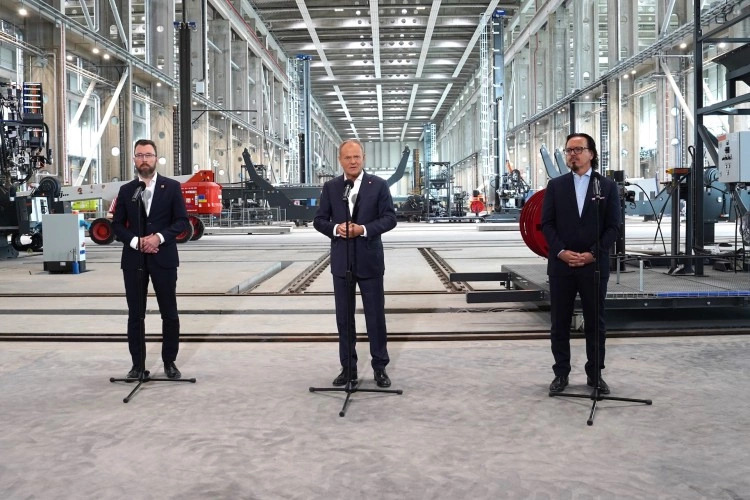
Prime Minister Donald Tusk visited the Baltic Towers factory in Gdańsk, which will start the production of offshore wind towers next week, employing 500 qualified employees. The 6.2 ha facility was built in 13 months and is the largest and most modern factory of this type in Poland, prepared for the production of towers with a length of up to 50 me weight up to 500 tons. Tusk emphasized the importance of Polish offshore for cheap and safe energy and the role of local companies and technologies in this project. ARP president Wojciech Balczun indicated that the investment is part of the development of industry and public-private cooperation. Baltic Towers is ready to carry out orders related to turbines up to 15 GW and is looking for machine operators at work at the plant.
Photo. ARP
The European Investment Bank allocated EUR 700 million for the construction of the Wind Farms Baltic 2 and the Baltic 3 with a total power of 1.44 GW, implemented by Equinor and Polenergia. Farms will be built in the Polish Baltic Economic Zone, 22 and 37 km from Brzeg, and their launch is planned for 2028. The investment also includes the construction of land energy infrastructure and a service base in Łeba. The total value of the project is about PLN 27 billion (without financing costs), and the financing was provided by a consortium of about 30 institutions. The projects are strategic for Poland's energy transformation and will be able to power two million households with clean energy.
Source: PAP
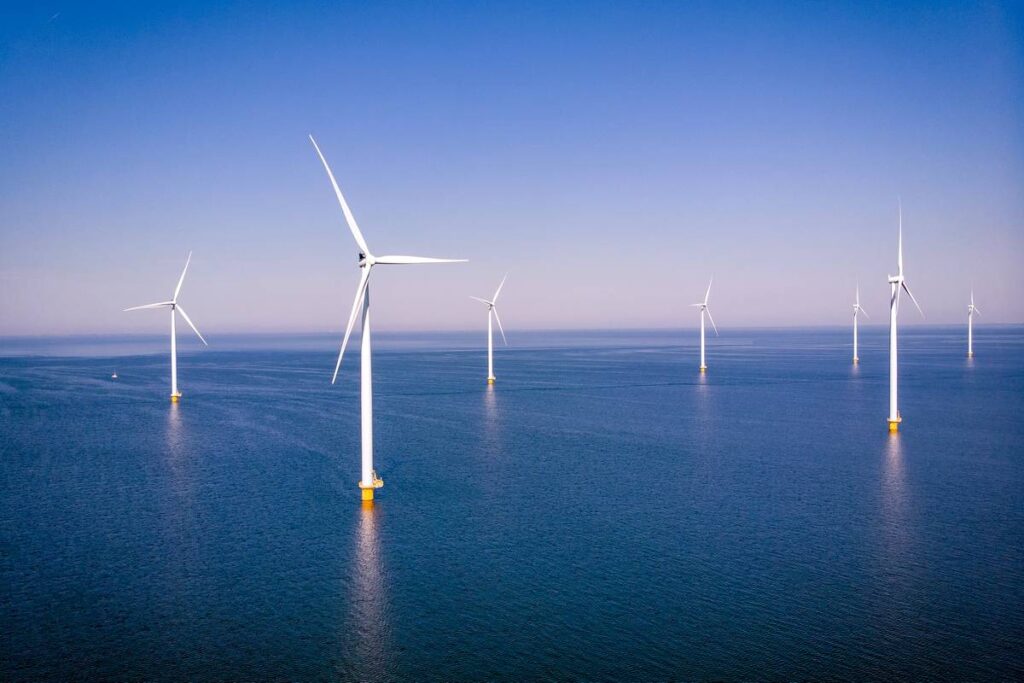
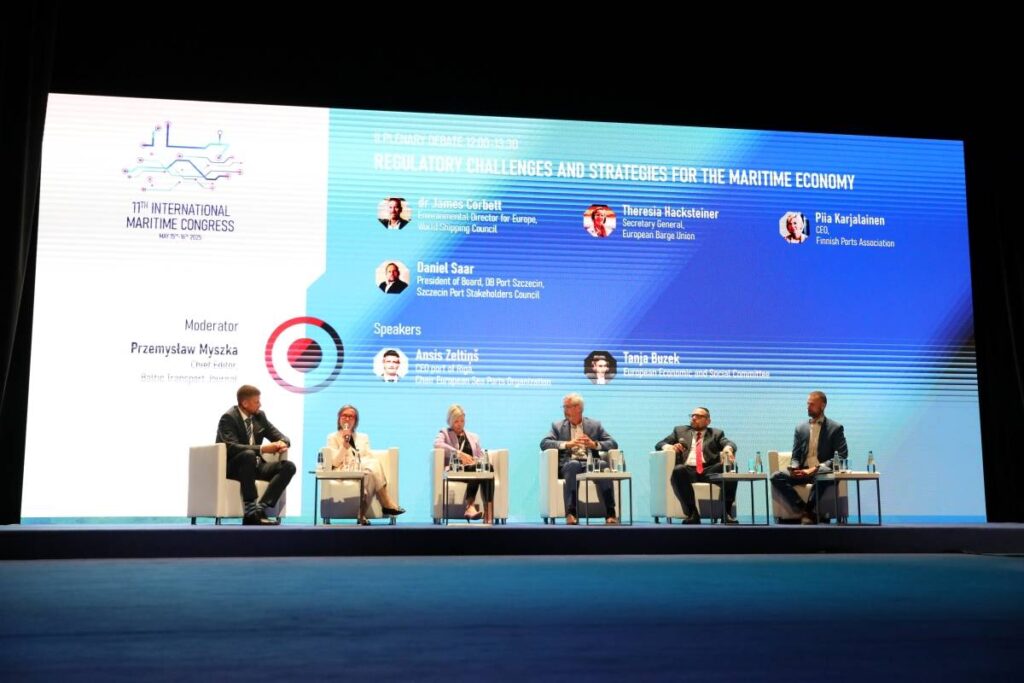
On Thursday, May 15 in Szczecin, the 11th International Maritime Congress began with the participation of Prime Minister Donald Tusk, who announced the implementation of the "Polish sea" program and the repolonization of the maritime sector, including the construction of ships in Polish shipyards. The announced investments included Construction of a new sailing ship - a successor to the gift of youth - and a new unit for the Maritime University of Technology in
Szczecin. The Ministry of Infrastructure, in turn, announced the construction of a container terminal in Świnoujście, the modernization of "Nadodrzanka" and the construction of a tunnel near the Oder. During the congress, an informal meeting of EU ministers for maritime economy took place and 12 thematic panels were planned with the participation of over 70 experts.
Photo: Sławomir Lewandowski
During Stena Line Baltic Business Conference Gdynia 2025, the 30th anniversary of the Gdynia-Karlskrona ferry connection was celebrated, which served over 12 million passengers and 2.5 million vehicles. Its strategic importance for Polish-Swedish cooperation and the development of the Baltic region was emphasized, recalling the dynamic development of infrastructure, including a modern ferry terminal in Gdynia, put into use in 2020. Experts have noticed the increase in commercial exchange by over 40% in the last decade and changing trends in tourism and logistics, especially in intermodal transport. The involvement in pro -ecological activities, including reduction of CO2 emissions by 30% and the implementation of innovative energy solutions on ferries, was also emphasized. The conference confirmed the key role of this merger in strengthening regional integration and strengthening economic cooperation.
Photo GospodarkaMorska.pl
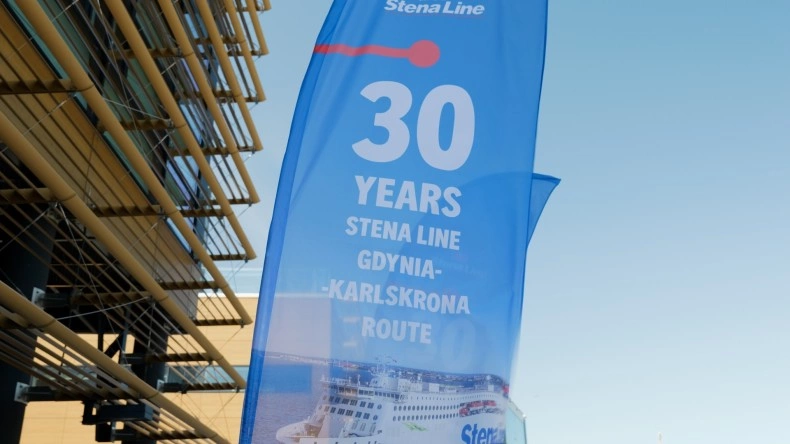
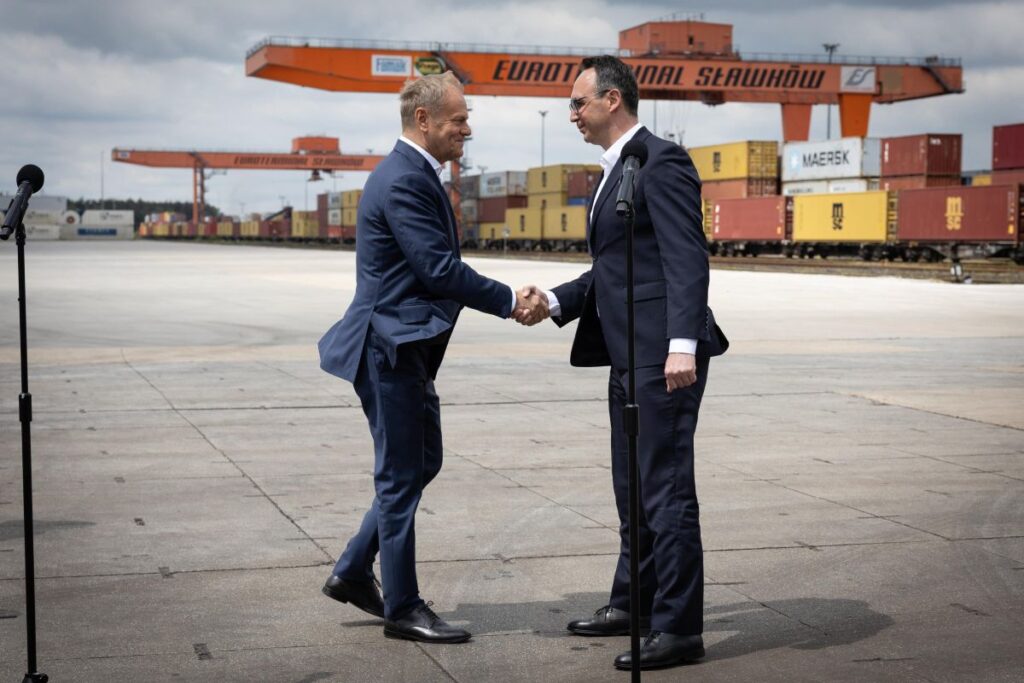
Prime Minister Donald Tusk announced that Euroterminal Sławków will become the largest transhipment logistics hub in Europe, increasing transhipment abilities from 285 thousand. up to over 500 thousand TEU annually. Located at the interface of broad -gauge and normal -gauge railway lines, the terminal will be an important point for the transport of goods between Asia and Europe and a key element in the reconstruction of Ukraine. Investments implemented by the Industrial Development Agency reach about PLN 180 million for the second stage of expansion, with plans for further development worth over EUR 1 billion. The Minister of Infrastructure Dariusz Klimczak emphasized that the expansion of the terminal is one of the most important investments in Polish logistics, which is part of a wider transport network of the country. Euroterminal is to become a strategic transhipment center, generating significant profits and supporting the development of the region and the Polish economy.
Photo. Industrial Development Agency